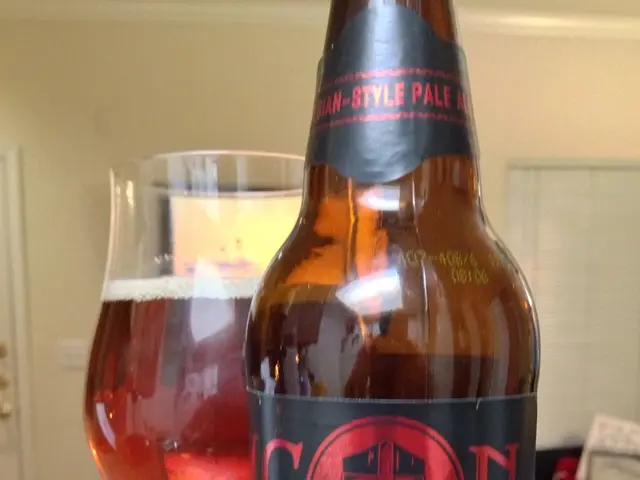Title: Trump's Direct Threat to European Businesses
In the hallowed halls of the World Economic Forum in Davos, the economic elite were basking in the glory of globalization. Yet, the looming presence of Donald Trump cast a shadow over their celebration. With his "America First" policy, the newly-elected U.S. President signaled a shift, placing his bets on the power of the strong.
Trump made a grand entrance at the World Economic Forum, delivering his maiden address post-inauguration to an international audience. As the words flowed, his stance against Europe became increasingly apparent.
"My message is unambiguous," Trump declared to the global economic elite. "Join us in manufacturing your products in the USA." He promised a tax-friendly environment with minimal regulation, making the United States an attractive destination for factories. However, if they chose to manufacture elsewhere, a hefty tariff would be imposed. The extent of these tariffs, he didn't specify, but the potential revenues were staggering - billions, if not trillions, of dollars for the U.S. treasury.
Trump showed no mercy towards the EU, accusing it of treating the U.S. unfairly and poorly. He pointed out the EU's alleged refusal to purchase agricultural products and cars from the U.S. As the trade deficit with the EU was a pressing concern for him, he considered it as evidence of the Europeans taking advantage of the U.S.
He also voiced his displeasure over the EU's fines against Google and Apple, nearly $5 billion and $13 billion respectively. "Regardless of what you think of these companies, they are American companies," Trump asserted. He vowed to fight back, viewing these fines as a form of excessive taxation.
The U.S. President repeated his message throughout his speech, emphasizing his determination to prevent the U.S. from being treated unfairly. He demanded respect not only from its allies but also from countries with whom the U.S. had strained relations. If Canada wished to avoid tariffs, its only option, he suggested, was to become a U.S. state.
"America is back and thriving in business," Trump announced. He used the example of Saudi Arabia, which pledged to invest $600 billion in the U.S. Trump joked about increasing the amount to a trillion dollars, citing the U.S.'s role in Saudi Arabia's development.
The moderator, after the speech, extended his thanks to Trump. The applause echoed in the room, a stark contrast to the anti-globalization stance of the U.S. President. Trump's policy, which could be seen as the end of the "golden age" of the U.S., was met with mixed feelings by the World Economic Forum. While some saw it as a wake-up call, others questioned the impact of this "America First" policy in the world.
Previous to this, Christine Lagarde, the President of the European Central Bank, spoke at Davos, expressing her concern that the EU was facing an existential crisis. She pointed to Trump's trade policy as a significant sign of this crisis, urging the EU to respond accordingly.
Referenced Sources:1. https://www.whitehouse.gov/presidential-actions/executive-order-addressing-steel-aluminum-sector-national-security/2. https://www.reuters.com/article/us-usa-mexico-tariffs/trump-puts-tariffs-order-on-hold-for-canada-mexico-idUSKCN1PV2V23. https://www.whitehouse.gov/presidential-actions/executive-order-preserving-integrity-u-s-credit-ratings-agencies/4. https://www.whitehouse.gov/presidential-actions/executive-order-promoting-stewardship-persistent-growth-american-industry/
Trump's assertions against Europe continued during his Q&A session, echoing his speech's themes. He reiterated his stance on unfair trade practices and threatened to impose tariffs if necessary.
Despite the mixed responses from the World Economic Forum, Trump's "America First" policy resonated with a significant section of the U.S. populace, who believed in reclaimingAmerican economic sovereignty.
[End of text containing the given words]





